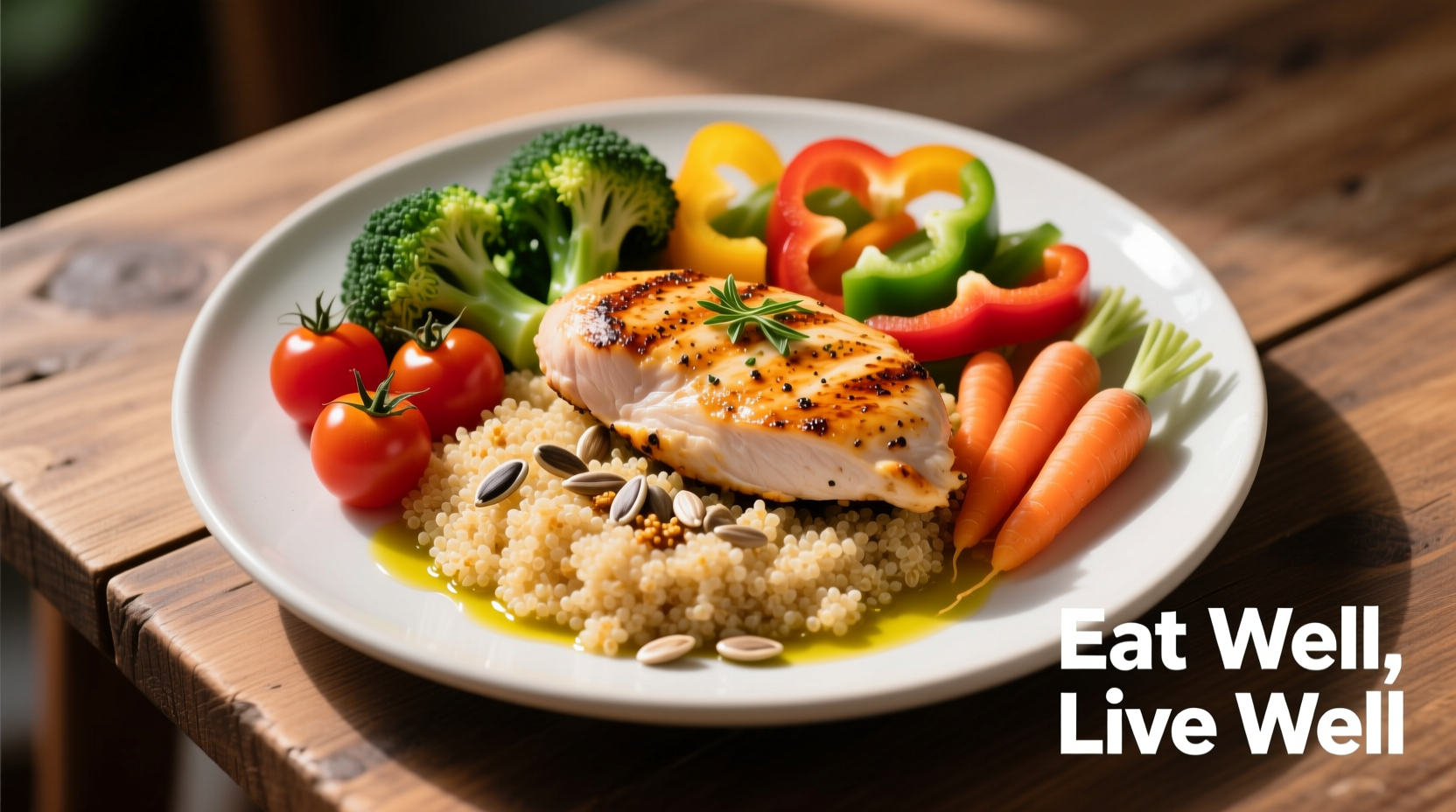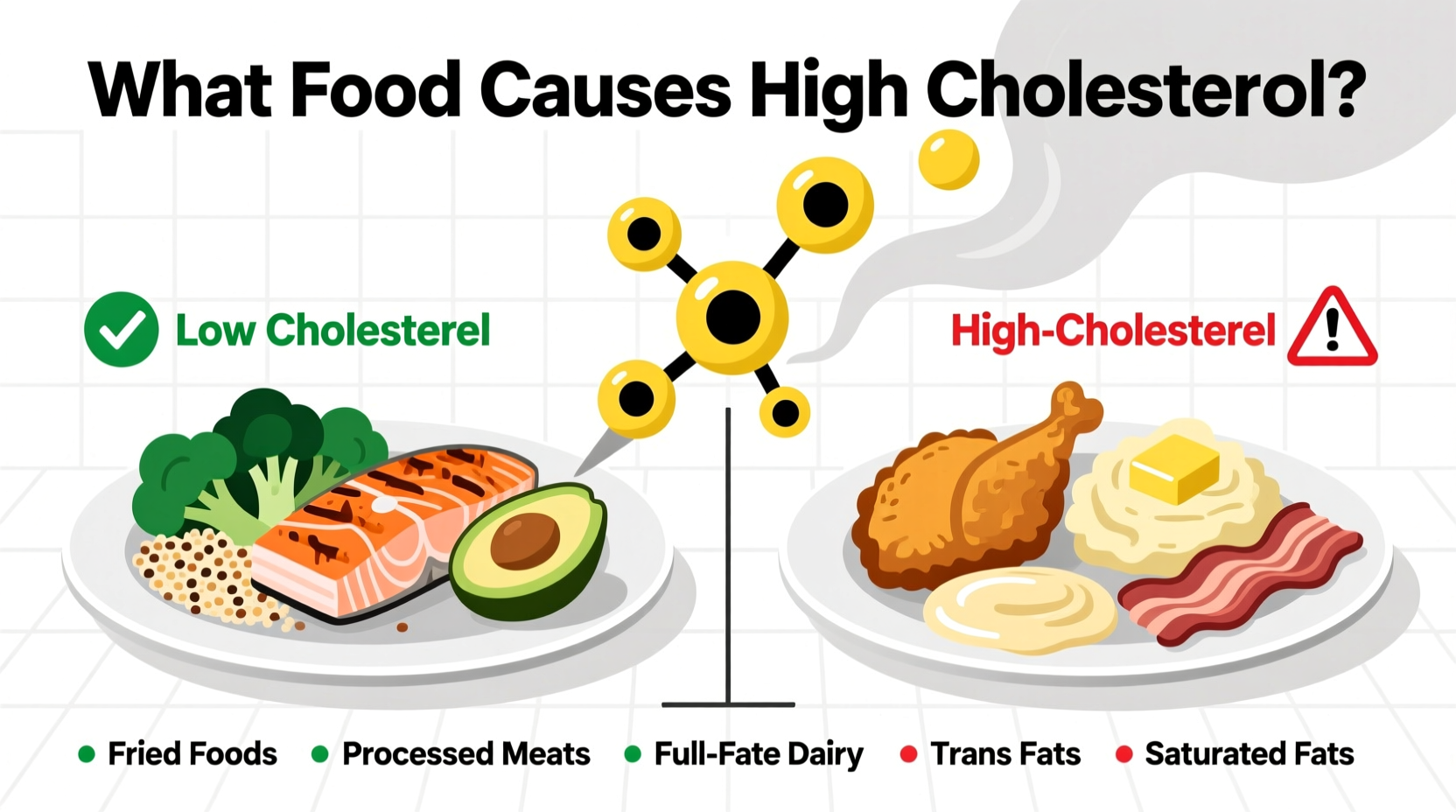Understanding Cholesterol: Beyond Dietary Cholesterol
Many people mistakenly believe that foods high in dietary cholesterol—like eggs or shellfish—are the main problem. However, research shows that saturated fats and trans fats have a much stronger impact on raising blood cholesterol levels than dietary cholesterol alone. Your liver produces most of the cholesterol in your body, and certain foods trigger it to produce more LDL cholesterol.
The Real Cholesterol-Raising Culprits
Understanding which foods actually affect your cholesterol levels can help you make smarter dietary choices. Here's what the science tells us:
Saturated Fat Sources
Saturated fats are the primary dietary factor that raises LDL cholesterol. According to the American Heart Association, saturated fats can increase LDL cholesterol levels more than any other dietary component.
- Fatty cuts of red meat (beef, lamb, pork) - particularly marbled cuts and processed meats
- Full-fat dairy products including whole milk, butter, cream, and cheese
- Poultry with skin - the skin contains significant saturated fat
- Tropical oils like coconut oil and palm oil, often found in packaged snacks
Trans Fats: The Most Dangerous Offender
Trans fats are artificially created through hydrogenation and are particularly harmful to cholesterol levels. The U.S. Food and Drug Administration has banned artificial trans fats in most foods, but they can still appear in some products.
Watch for these trans fat sources:
- Fried foods (especially from restaurants using older frying methods)
- Many commercially baked goods (cookies, cakes, pastries)
- Non-dairy creamers
- Microwave popcorn
- Refrigerated dough products
Processed Carbohydrates and Sugars
Recent research from the National Institutes of Health shows that excessive refined carbohydrates and sugars can also negatively impact cholesterol levels by increasing triglycerides and lowering HDL ("good") cholesterol.
Foods to limit include:
- White bread and other refined grain products
- Sugary beverages
- Candy and desserts
- Many "low-fat" processed foods that replace fat with sugar
| Cholesterol-Raising Foods | Healthier Alternatives | Cholesterol Impact Reduction |
|---|---|---|
| Fried chicken | Baked chicken (skin removed) | Up to 30% lower LDL |
| Butter | Olive oil or avocado oil | 15-20% improvement in lipid profile |
| Regular ground beef (80% lean) | Lean ground turkey or 95% lean beef | 25% less saturated fat |
| Full-fat cheese | Part-skim mozzarella or feta | Up to 50% less saturated fat |
| Commercial baked goods | Homemade versions with healthy fats | Eliminates trans fats completely |
Foods Often Misunderstood
Certain foods have gotten an unfair reputation when it comes to cholesterol:
Eggs
While egg yolks contain dietary cholesterol, research published in the American Heart Association's journal shows that for most healthy people, eating one egg daily doesn't significantly raise cholesterol levels. The saturated fat accompanying eggs (like bacon or sausage) is often the real problem.
Shellfish
Shrimp and other shellfish contain cholesterol but are low in saturated fat. They can be part of a heart-healthy diet when prepared without butter or fried coatings.
Practical Steps to Manage Your Cholesterol Through Diet
Implementing these evidence-based strategies can help lower your cholesterol levels:
Read Labels Strategically
Look beyond the "cholesterol" number on nutrition labels. Focus on:
- Saturated fat content (aim for less than 5g per serving)
- Trans fat listing (should be 0g)
- Added sugars (hidden in many "healthy" products)
- Ingredients list for hydrogenated or partially hydrogenated oils
Smart Swaps for Common Foods
Small changes can make a big difference:
- Replace butter with avocado or nut butters
- Choose lean protein sources like fish, beans, and lentils
- Opt for whole grains instead of refined carbohydrates
- Use herbs and spices instead of fatty sauces for flavor

Build a Heart-Healthy Meal Pattern
The Mediterranean diet pattern, recommended by the American Heart Association, emphasizes:
- Plenty of fruits and vegetables
- Whole grains
- Healthy fats like olive oil and nuts
- Lean protein sources, particularly fish
- Limited red meat and sweets
This approach has been shown in multiple studies to improve cholesterol levels and reduce heart disease risk.
When to Consult a Professional
Dietary changes alone may not be enough for everyone. If you have:
- Family history of high cholesterol
- Existing heart disease
- Diabetes
- Consistently high cholesterol despite dietary changes
Consult a registered dietitian or healthcare provider for personalized guidance. They can help you develop a comprehensive plan that addresses your specific health needs.











 浙公网安备
33010002000092号
浙公网安备
33010002000092号 浙B2-20120091-4
浙B2-20120091-4